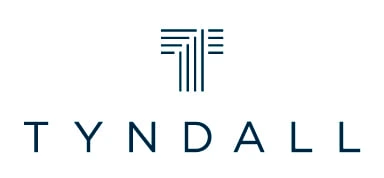With six weeks to go until the US election, the one thing that seems sure is that it will be a close race. We can see this from the polls and from the fact the country is split pretty much 50/50 red and blue. The last two elections were so close that the result in 2016 came down to just 76,000 voters in three states (Wisconsin, Michigan & Pennsylvania) and the 2020 race was decided by a mere 65,000 votes in just three states again, Wisconsin, Arizona and Georgia. This means it’s impossible to know which way it will go and applying typical polling error would mean either candidate could win quite handily.
This content is intended for professional clients only.
The Election Will Be Close – Does the Market Hold Any Clues?
With six weeks to go until the US election, the one thing that seems sure is that it will be a close race. We can see this from the polls and from the fact the country is split pretty much 50/50 red and blue. The last two elections were so close that the result in 2016 came down to just 76,000 voters in three states (Wisconsin, Michigan & Pennsylvania) and the 2020 race was decided by a mere 65,000 votes in just three states again, Wisconsin, Arizona and Georgia. This means it’s impossible to know which way it will go and applying typical polling error would mean either candidate could win quite handily.
There is another factor however that has made elections closer and that is early voting. This was introduced back in 2004 and has meant that voters have the flexibility to vote early and don’t have to traipse out all at once on 5 November. One interesting thing about this is that both campaigns will get data on who has and who hasn’t voted, and so they can target those people who have not yet voted. This means voter turnout is higher, which amplifies the closeness of the race, and also means that voting for the election has already started in some states. But it’s too early to draw any conclusions as the numbers are still very low. Historically, Republican voters prefer to vote on election day, so any data would be skewed by this and other factors.
In terms of clues coming from the stock market, strong equity markets and low unemployment in the months preceding the election favour the incumbent party. Bill Clinton’s election strategists Jim Carville was right when he quipped “It’s the economy, stupid”, back in 1992. Equity market volatility falling since August and strong housing prices also help the Democrats as does the narrative that they’ve tamed inflation, which, at least in the short term, has happened and CPI is set to hit a cycle low this month.
Defence stocks have been performing well and this would also correlate with a Harris win, as Trump has indicated his desire to end the war in Ukraine and is very much on an anti-war ticket. This is a departure from the norm and it’s unusual to see defence companies correlating to a Democrat win. Another sector which is correlated to a Trump win is semiconductors and this group has been underperforming the market over the last three months. Trump is seen as the ultimate China hawk and his protectionist policies benefit the sector. In the post-debate afterglow, his odds slipped somewhat, and the sector hasn’t liked it.
Whilst there are of course many factors that affect stock prices, it’s interesting to note these movements within the political context. They can change and, as noted above, when the race is this close and will likely to be decided by a small number of voters in a few states, it’s a coin toss. That being said, these market clues suggest a Harris win, but as we’ve seen in recent years, you can never write off Donald Trump.

